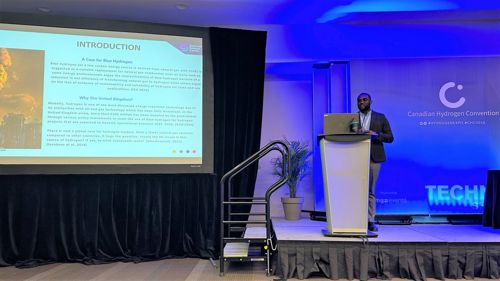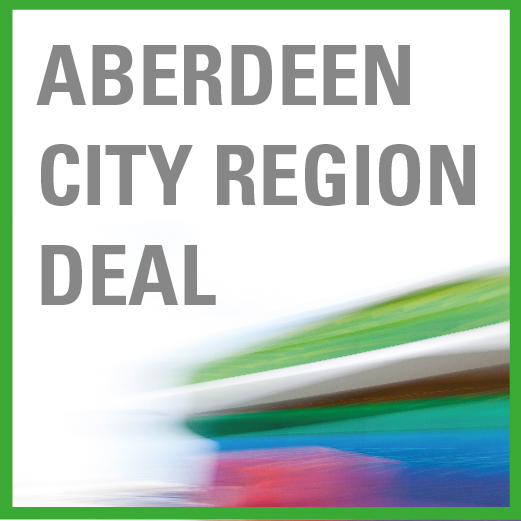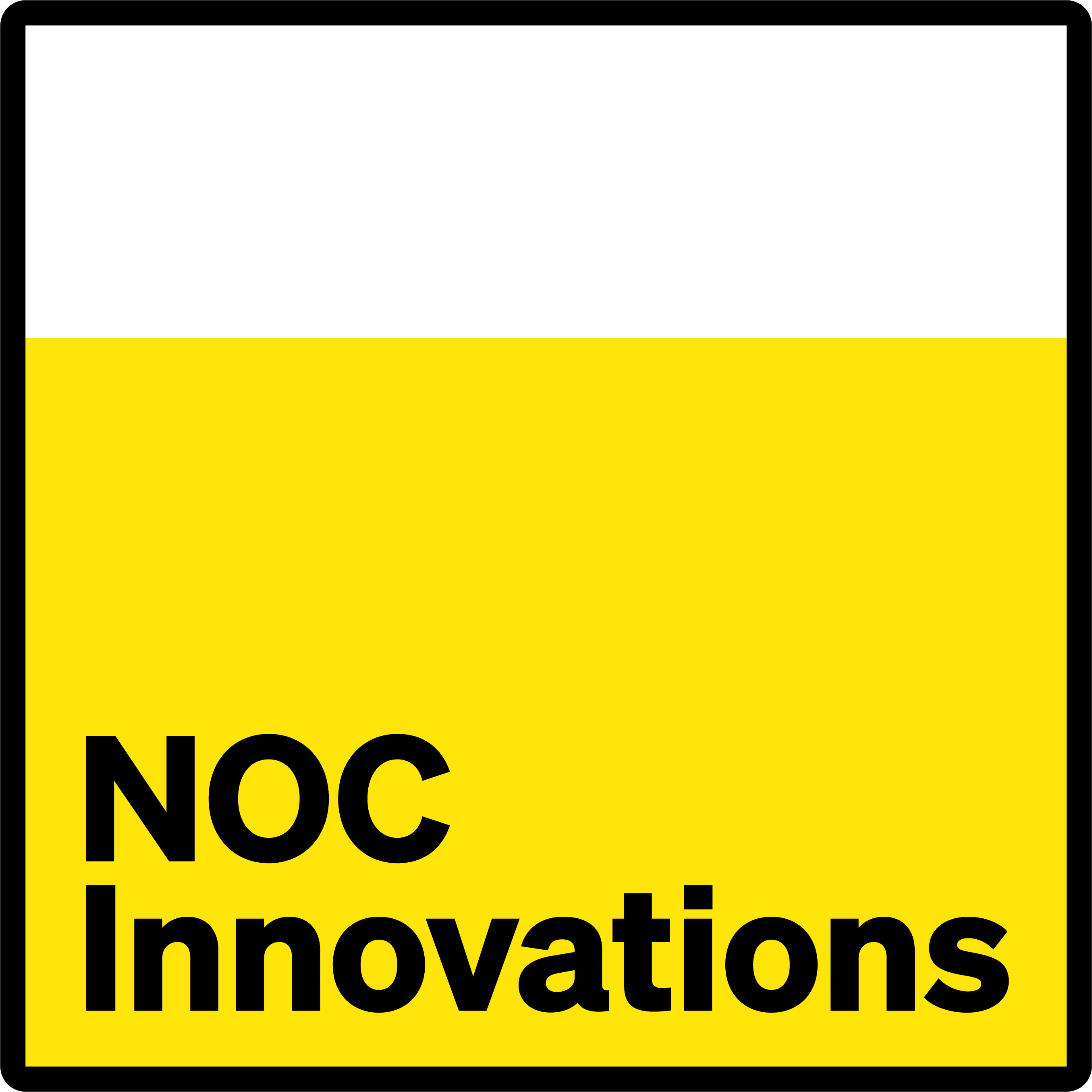Get to know our Integrated Energy PhD Student, Alexander Oburoh. Originally from Nigeria, he has been part of the Integrated Energy team at the NSC since October 2021. Prior to joining the NSC, Alexander received his BSc in Mechanical Engineering from Covenant University and a Master’s Degree in Oil & Gas Engineering from Robert Gordon University (RGU). Alexander is currently undertaking his PhD in ‘Blue Hydrogen and Its Policy and Environmental Impacts on the UK’s Net Zero Goals’ at RGU.
What is your research all about?
I’m currently investigating the environmental and policy impacts of producing and utilising blue hydrogen in the United Kingdom. Lifecycle assessment, value chain analysis and policy analysis are used to answer the research questions of how blue hydrogen can be sustainably deployed and to what scale considering the net zero goals.
What or who first sparked your interest in your research subject?
When I was rounding off my MSc at RGU, I became quite interested in the debates on hydrogen in the media, especially across social media. This was around 2020 when there was still a lot of uncertainty relating to the COVID-19 pandemic, people were starting to understand the global energy system and how our activities are affecting the environment around us. At this time, hydrogen was reoccurring in conversations as Governments across the globe were planning major investments in hydrogen and exploring its pros and cons. After careful evaluation, I discovered that there were a lot of grey areas, particularly hydrogen’s role in reducing emissions and the implications of policy directions. This realisation led to me pursuing my PhD on this subject.
What impact is your research having outside of academia?
So far, the results have been featured in two international conference presentations: The All Things Hydrogen Conference in Aberdeen, Scotland and the Canadian Hydrogen Convention in Edmonton, Canada.

As the project revolves around the policy of blue hydrogen, one of the key outcomes will be the development of a policy model for blue hydrogen that will aid policymakers in determining the scale of policy support and investment for blue hydrogen, as well as determining how regulations for blue hydrogen should be developed, implemented and monitored. Through a techno-environmental model that will be developed, considering the environmental and value chain aspects of blue hydrogen, industry and businesses will know the exact role of hydrogen in their net zero goals. The study will have an impact on moving towards a firm consensus on the production scale limits of sustainable blue hydrogen production in the UK.
Are there any role models or mentors who have helped you along the way?
My supervisor, Professor James Njuguna, has been a huge source of inspiration throughout my research journey. He knows how to ask the most important questions and critique my work in ways that bring tremendous value to my research.
What advice do you have for somebody embarking on a research career?
I will always advise people to just start whatever they plan to do. As humans, we sometimes overanalyse things to an extent where we do not make a move. So, for anyone embarking on a research career, please just start. Nobody wants to join a bus that is not moving. I will also advise anyone not to fear asking questions, when in doubt, ask! You will only be ignorant once.
Favourite thing about the NSC?
Working with the NSC team is my favourite thing about the centre. I recall when I encountered a challenge during my research for a couple of days and I just randomly spoke to a colleague working within the Net Zero Operations team (a totally different field from mine) and by just showing him, he was able to offer me a distinct perspective to my work I had been missing out. Working with people from diverse cultures, experiences and backgrounds who are willing to go above and beyond for you is an exciting part of being at the NSC.
What do you enjoy doing outside of work?
I do a lot of community development work in my home country Nigeria and whenever my research cap is not on, I am strategising and planning community impact projects which gives me a lot of fulfilment and joy. It is also important to note that the deep skills I have learned from my research work so far (such as knowing how and when to ask the right questions, project management etc.) have helped me in doing more for the communities back home in Nigeria.
To discover more about Alexander, his research and general advice, view our recent RGU Alumni Video.
To learn more about how our Integrated Energy team is solving real-world problems and the other impactful research projects that are currently being undertaken, view our dedicated Integrated Energy webpage.








